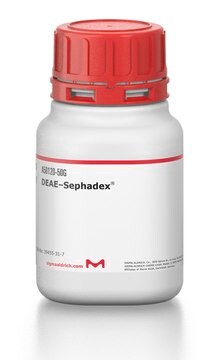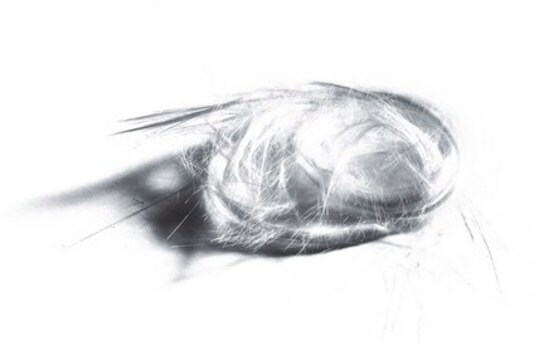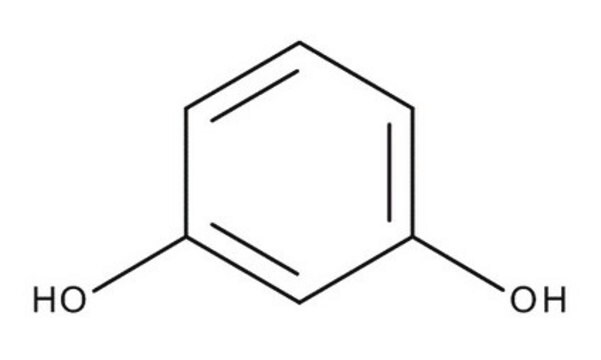295744
Silver
wool, diam. 0.05 mm, ≥99.9% trace metals basis
Autenticatiper visualizzare i prezzi riservati alla tua organizzazione & contrattuali
About This Item
Formula condensata:
Ag
Numero CAS:
Peso molecolare:
107.87
Numero CE:
Numero MDL:
Codice UNSPSC:
12141740
ID PubChem:
NACRES:
NA.23
Prodotti consigliati
Livello qualitativo
Saggio
≥99.9% trace metals basis
Stato
wool
Resistività
1.59 μΩ-cm, 20°C
Diametro
0.05 mm
P. ebollizione
2212 °C (lit.)
Punto di fusione
960 °C (lit.)
Densità
10.49 g/cm3 (lit.)
Stringa SMILE
[Ag]
InChI
1S/Ag
BQCADISMDOOEFD-UHFFFAOYSA-N
Descrizione generale
Silveris a versatile element with a wide range of applications, particularly in thefield of catalysis. It is increasingly utilized in the form of silvernanoparticles (AgNPs) due to their high surface area, making them effective inorganic transformations, photocatalysis, and electrocatalysis. In organicsynthesis, silver catalysts play a crucial role in facilitating variousreactions, showcasing good functional group compatibility and the ability tocatalyze a wide range of transformations.
Applicazioni
- Synthesis of silver nanoparticles with different shapes: Details methods to control the shape of silver nanoparticles, important for material science applications where particle geometry affects properties (B Khodashenas, HR Ghorbani, 2019).
- Silver nanoparticles: synthesis, characterization, properties, applications, and therapeutic approaches: Offers a comprehensive review of silver nanoparticles, providing valuable insights for academia and research-oriented applications (XF Zhang et al., 2016).
Avvertenze
Warning
Indicazioni di pericolo
Consigli di prudenza
Classi di pericolo
Aquatic Acute 1 - Aquatic Chronic 1
Codice della classe di stoccaggio
13 - Non Combustible Solids
Classe di pericolosità dell'acqua (WGK)
WGK 3
Punto d’infiammabilità (°F)
Not applicable
Punto d’infiammabilità (°C)
Not applicable
Dispositivi di protezione individuale
Eyeshields, Gloves, type N95 (US)
Scegli una delle versioni più recenti:
Possiedi già questo prodotto?
I documenti relativi ai prodotti acquistati recentemente sono disponibili nell’Archivio dei documenti.
Rui Wang et al.
Journal of nanoscience and nanotechnology, 13(6), 3851-3854 (2013-07-19)
The present studies reveal that silver nanoparticles (AgNPs) can induce apoptosis and enhance radio-sensitivity on cancer cells. In this paper, we mainly investigated the effect of AgNPs on rat glioma C6 cells upon the combination treatment of hyperthermia treatment (HTT).
Sa Ram Lee et al.
Journal of biomedical nanotechnology, 9(7), 1241-1244 (2013-08-06)
We demonstrate simultaneous detection of surface-enhanced Raman scattering (SERS) and fluorescence signals from a silver microbead. For the dual signal generation, silver microbeads with a diameter of 15 microm were functionalized with benzenethiol (BT) as a Raman tag and a
S S Sudha et al.
Indian journal of experimental biology, 51(5), 393-399 (2013-07-05)
Silver nanoparticles is known to have antimicrobial affects. Cyanobacteria isolates from muthupet mangrove includes Aphanothece sp, Oscillatoria sp, Microcoleus sp, Aphanocapsa sp, Phormidium sp, Lyngbya sp, Gleocapsa sp, Synechococcus sp, Spirulina sp with were set in compliance with their cellular
Muthusamy Prabhu et al.
Journal of nanoscience and nanotechnology, 13(8), 5327-5339 (2013-07-26)
In this study, silver-doped silica- and phosphate-based nanobioactive glass compositions (58SiO2-(33- x)CaO-9P2O5-xAg2O) (x = 0, 0.5, 1, 2 and 3 mol%) were synthesised by a simple and cost-effective sol-gel method. The prepared samples were characterised by X-ray diffraction, Fourier transform
T Prameela Devi et al.
Indian journal of experimental biology, 51(7), 543-547 (2013-08-01)
A total of 75 isolates belonging to five different species of Trichoderma viz., T. asperellum, T. harzianum, T. longibrachiatum, T. pseudokoningii and T. virens were screened for the production of silver nanoparticles. Although all the isolates produced nanoparticles, T. virens
Il team dei nostri ricercatori vanta grande esperienza in tutte le aree della ricerca quali Life Science, scienza dei materiali, sintesi chimica, cromatografia, discipline analitiche, ecc..
Contatta l'Assistenza Tecnica.









